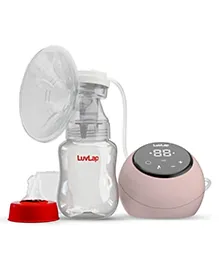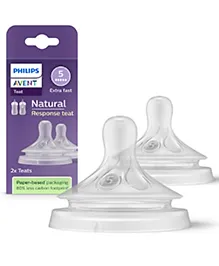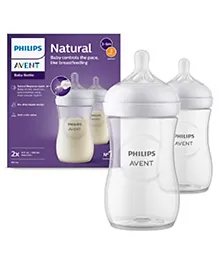Is Extended Breastfeeding Beneficial For You
- Video: Extended Breastfeeding – Is It Beneficial?
- What is Extended Breastfeeding?
- Benefits of Prolonged Breastfeeding
- Problems Associated with Extended Breastfeeding
- Is Nursing Your Toddler Possible during Pregnancy?
- Tips for Making Extended Breastfeeding Work for You
Committing to breastfeeding is a crucial job in a mother’s life. While there are many advantages of breastfeeding, providing vital nutrients required to protect a child from illness being one of them.
Video: Extended Breastfeeding – Is It Beneficial?
What is Extended Breastfeeding?
The act of breastfeeding your baby beyond a year is considered extended breastfeeding. This includes breastfeeding toddlers in the age of 2-4. If a woman can produce the milk required for their baby, they can always opt for extended breastfeeding.
Benefits of Prolonged Breastfeeding
Apart from preventing illnesses, prolonged breastfeeding has been proven to increase IQ and EQ levels of a toddler, thereby stimulating mental growth and development. Studies have shown that mothers feel more content by breastfeeding without worry and help feel a strong connection to their baby.
1. Benefits for Toddler
Breastfeeding toddler benefits include:
- One of the biggest benefits of breast milk are the various nutrients it provides to keep your child’s immunity robust.
- It fosters a great emotional connection and bond with a mother and becomes a source of support for your toddler who is becoming independent day after day.
- If a mother is travelling to unfamiliar places, the comfort of a bosom can be reassuring for a child.
- It helps maintain a healthy weight for your child.
- Breast milk can adapt to provide for the growing needs of the child with the right amount of nutrition.
- It can lower risks of diseases which a child may get when he/she becomes older.
- It can make them more independent, especially if they wean off on their own time.
- It can help keep the toddler hydrated and full lessening the chances of dehydration.
2. Benefits for Mother
Your child may be gaining great immunity from breast milk, but even mothers have a ton of benefits from breastfeeding. Here are a few:
- It increases bonding time and builds a stronger connection to the baby.
- It can help in losing the weight gained during pregnancy.
- The time spent breastfeeding can have a calming effect on the mother and take away the demands of a career and other commitments.
- It can reduce the risks of breast, ovarian cancer and also lower the rate of cardiovascular diseases.
- Delayed periods is also a common side effect of breastfeeding thereby reducing cramps and bloating that come with it.
- A mother’s body produces oxytocin to continue breastfeeding which is great for healing after delivery.
- It makes mothers feel empowered as they can watch their baby grow into a healthy child.
- A mother does not have to worry about what formula will work for her baby by customizing it for the needs of an individual baby.
Problems Associated with Extended Breastfeeding
A lot of young mothers are in conflict when it comes to extended nursing, but it is vital to know the prolonged breastfeeding disadvantages in order to be better prepared.
- Hindering of a mother’s freedom
Breastfeeding is a big commitment, and after a certain amount of time, it may start intervening with a mother’s lifestyle and schedule. Planning around your baby’s feeding schedule, pumping sessions can all become tougher once life returns to normal.
2. Pain
Many women experience a lot of pain due to sore nipples, cracks and cuts and engorgement and blocked ducts. Discomfort becomes a constant companion and can cause annoyance to a young mother.
3. Public opinion
Many mothers will face a lot of criticism and backlash if they feed for a long time, even though breastfeeding has become widely accepted in public spaces. Mothers can feel upset or troubled due to this as many believe a child who is walking and talking should not be nursing.

4. Difficulty in weaning off
Some mothers may find it difficult to wean off their toddler from breastfeeding after a long period of time.
5. Fussy eaters
If a mother has only been breastfeeding and not introducing different kinds of food to their child, they may not take to many solid foods and become fussy eaters and prefer breast milk over other food.
6. Obesity and weight gain
As mothers have to continue to produce milk for their hungry child, they may be eating a lot more to keep up leading to weight gain.
7. Exhaustion
Being a new parent is demanding in itself, and extended nursing can make the mother even more tired.
8. Sleeplessness
Toddlers who breastfeed at night can have difficulty going to sleep.
Is Nursing Your Toddler Possible during Pregnancy?
Mothers can continue to nurse safely even during pregnancy to their toddler. The body will be able to determine the ample amount of nutrition that is required for your toddler, you and your growing baby as long as you follow a well-balanced diet and eat on a schedule. The most important thing to do is to listen to the body’s cues during this time.
Tips for Making Extended Breastfeeding Work for You
- Invest in a nursing necklace and sturdy nursing bras.
- Ensure that you surround yourself with supportive people when you breastfeed to avoid feeling criticised.
- Give your toddler the time to wean off on their own.
- Do not get discouraged by the biting, instead redirect that attention of your toddler somewhere else and continue to feed after a break.
- A mother can never run out of milk, usually, when they continue to nurse, so be generous and patient with your toddler.
- Plan ahead for nursing in public.
Extended breastfeeding has its obvious benefits such as improved immunity and a closer bond between you and your baby. On the flipside, it has disadvantages such as physical pain and dealing with the attached social stigma. We’ve provided you with the information on how to go about it. It is your prerogative if you want to extend breastfeeding and it should be done based on what you feel is right.
Also Read: Breastfeeding for Beginners
Was This Article Helpful?
Parenting is a huge responsibility, for you as a caregiver, but also for us as a parenting content platform. We understand that and take our responsibility of creating credible content seriously. FirstCry Parenting articles are written and published only after extensive research using factually sound references to deliver quality content that is accurate, validated by experts, and completely reliable. To understand how we go about creating content that is credible, read our editorial policy here.
























.svg)


















